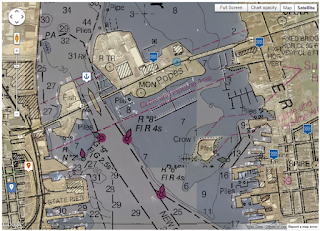 |
| Although most of this course will take place on land, much of my own learning about New Bedford takes place on the water as an active member of both Whaling City Rowing and the Azorean Maritime Heritage Society. (Rowing with WCR in this May 2018 photo, I am the one in the pink hat.) |
How This is Different from Most Study Tours
The term "study tour" usually describes short-term experiences in other countries. At Bridgewater State University, these are typically 10 to 20 days in length, led by a faculty member. The New Bedford Maritime City course is a similar length, but it does not involve airplanes, passports, or overnight stays.
The course does begin and end each day at the New Bedford municipal airport, but only because this is a convenient location for BSU-arranged parking.
How This is Similar to Other Study Tours
Most of my study-tour experience has been in Nicaragua, where I have led (with the incredible assistance of local guides) 11 study tours and one non-credit tour. Well over 100 people have enjoyed this experience, many of them returning either with me or on their own. In the process of leading this course -- plus one in Cabo Verde -- I have decided that I really like this format and I know how to make it both an effective and enjoyable learning experience.
 |
| Detail of New Bedford harbor nautical chart, with satellite overlay. The professor spends a lot of time in the center of this image! |
The characteristics of a study tour (aka travel course) that will be part of the New Bedford course include:
- Most learning will be through activities, rather than extensive reading.
- Those activities will be carefully planned and chosen, so that both the professor and the students are learning from local experts.
- The experience is self-contained, so that no particular coursework is required as a prerequisite. In fact, students bringing a variety disciplinary backgrounds to the course enrich the experience for all.
- There will be a fee beyond tuition, though in this course it is much less than in a travel course. The fee covers admission to some facilities and some snacks.
- The entire group travels together in a van for each day's activities.
- Students keep a journal of their experience, and write a reflection paper at the end of the course.
Graduate-Credit Note
This course is also listed as GEOG 520, so that in-service teachers or others seeking graduate credits can benefit from the experience. Such participants will complete all of the activities required of undergraduates, plus a research or curriculum project that will help them to meet professional goals. These projects will be agreed upon in individual consultation with me prior to the start of the course.


No comments:
Post a Comment